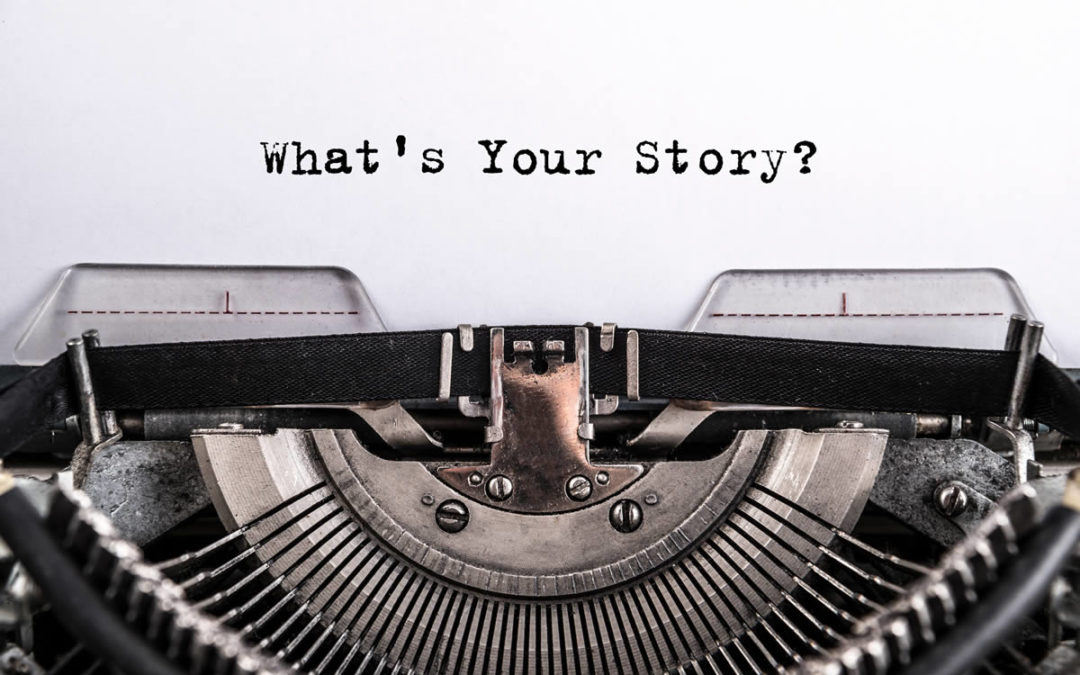If you know me, or if you checked out my website, you’ve probably figured out that I am a Star Wars fanatic. If you recognize the slight alteration of a popular film quote in my blog title, then you are probably a fan, too. Obi-Wan Kenobi gives this first glimpse of the Force to Luke Skywalker in Ep. IV – A New Hope:
“The Force is what gives a Jedi his power. It’s an energy field created by all living things. It surrounds us and penetrates us. It binds the galaxy together.”
In addition to being a Star Wars geek (don’t worry – I’ll get back to the Star Wars quote later), I am an actor. An actor is a storyteller. No matter what the medium (theatre, film, television, voice over, radio, puppetry, etc.) or platform (on stage, on screen, over the airwaves, digitally), the performer tells a story to an audience. I began my acting career in theatre, and I also earned a degree in Theatre/Communications. In my History of Theatre course, we learned that there are only three essential elements of theatre:
1 – a story to tell (narrative/script)
2 – someone to tell the story (actor)
3 – someone to hear the story (audience)
All the other elements we think of – costumes, stage, set, props, lighting, etc. – are wonderful and can certainly add to the production and aid in the storytelling, but they aren’t necessary. All you need is someone to tell a story to someone else.
We can go back even farther and remember that oral history predates written history. Originally, stories were not written down; they were passed on from generation to generation by voice. Our society today is so visual that it’s difficult to imagine how it must have been “back then”. We can even watch stories being told without any words at all (Pixar’s shorts come to mind – love those!). That is certainly another skill and art form itself, but I believe we shouldn’t, and can’t, lose the personal connection of the human voice.
I’m a voice actor, so you might think I’m a bit biased, but as you think about your life, consider the voices you hear each day (besides the voices in your head, ha ha – and wow do I have a lot of those, but that’s another blog…). Voices giving you information, voices providing help or advice, voices entertaining you, voices teaching you how to do something, voices promoting or selling a product or service, voices reading you a book, and the list goes on. Voices are all around us, sharing some kind of message, or story, with us.
Now think about how you could use a voice to tell your story.
~ Do you run a business and need to share information with your employees in an effective and engaging way?
~Are you a writer who wants your words shared by voice and not just by text?
~Are you an educator who wants to provide an alternative way to teach curriculum to students that meets their diverse learning styles?
~Are you an artist who has created characters for animation, graphic novels, video games, etc. that need to be brought to life with voices?
~Do you develop toys that need voices to engage with kids?
~Are you a startup company who wants to promote your product or service with explainer videos or commercials?
~Do you enjoy making YouTube tutorials but use text and graphics to explain the steps because you don’t want to use your own voice?
~Do you work in an office or at a company that wants professional phone system prompts and voicemail messages to make a potential customer’s first engagement with you a positive one?
I could go on, but I hope you can see how important the human voice is in telling your story – whatever that story may be. That brings us back to the Star Wars quote. Like the Force, storytelling gives you/your product/your company/your message power – the power to make a connection between human beings. Storytelling is all around us; it penetrates us, consciously or not, and it brings us together.
I am an actor. I am a voice actor. I am a storyteller. I am passionate about bringing your stories to life so they connect with your audience and make a positive and lasting impression on them.
What do you think?
What did I leave out? How else could you use a voice to tell your story?
I’ve shared a number of ways we experience voice acting on a regular basis. I’ll list them below with a few others, and please add to the list in the comments below.
e-Learning
Commercials
Audiobooks
Animation/Anime/Video Games
Toys
Tourism Videos
Explainer Videos
Training Videos
Online/YouTube tutorials
IVR/Telephony/Voicemail
GPS Navigation
Promos & Trailers
PSAs
Medical Narration
Technical Narration
Corporate Narration
Radio Dramas
Radio Broadcasting
Documentaries
Guided Meditation Exercises
Museum Tours
ADR/Looping


Have you seen any of the early reviews of Rise Of Skywalker? I wasn’t a real big fan of the Last Jedi, but it looks like this movie is going to be better. All I know is I just want another Daisy Ridley movie! Starwars for life!